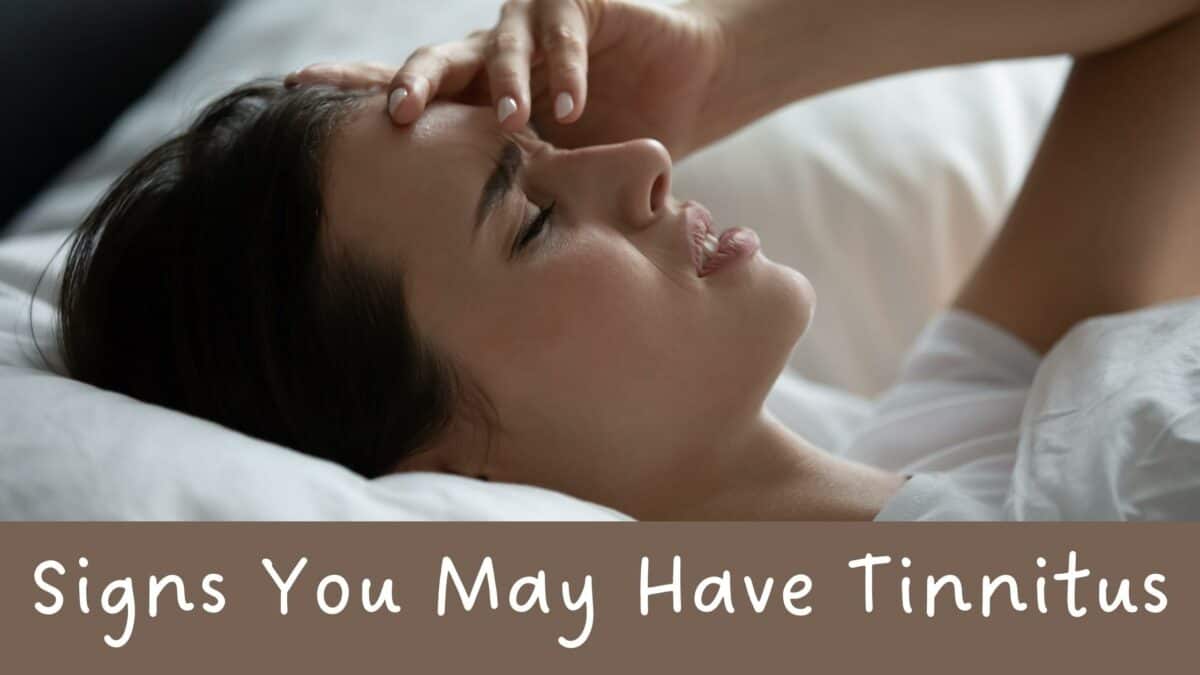You have likely experienced a slight buzzing or ringing sound in your ears. Maybe after attending a concert, being in a noisy social setting, or after listening to audio through your headphones. This experience – hearing a ringing like noise in your ears that no one else can hear – is referred to as tinnitus. According to the Centers for Disease Control and Prevention (CDC), 50 million people experience some degree of tinnitus and 20 million live with chronic tinnitus. Additionally, the Hearing Health Foundation estimates that 16 million people seek medical attention for tinnitus every year. Tinnitus can take a toll on sleep, reduce ability to concentrate and complete daily tasks, and be incredibly unpleasant to deal with. Recognizing signs of tinnitus and practicing ways to manage it can significantly alleviate its impact.
What Causes Tinnitus?
Tinnitus is not a condition itself but is a symptom of an underlying health issue. According to the American Tinnitus Association, nearly 200 health conditions can produce tinnitus as a symptom. Because so many health conditions share tinnitus as a symptom, it can be challenging to diagnose and treat. Common causes include the following:
- Hearing Loss. The most common cause of tinnitus is hearing loss, a chronic condition that affects over 48 million people. It is estimated that 90% of all cases of tinnitus also occur with hearing loss. Hearing loss can be caused by a variety of factors including environmental exposure to loud noise, aging, existing medical conditions, and head injuries. Most often, hearing is impaired as a result of damaged hair cells in the inner ear. These sensory cells are responsible for helping the brain process speech and sound by converting incoming soundwaves into electrical signals that are further analyzed and assigned meaning to.
- Ear obstructions. Physical blockages in the ear prevent sound from being absorbed and fully processed. Ear obstructions include accumulated ear wax in the ear canal, bone growths, injury from inserting things into the ear etc. This blocks sound from traveling through the ear canal to the inner ear. It can also lead to a buildup of bacteria, causing an infection that can also produce hearing loss and tinnitus.
- Meniere’s Disease. An inner ear disorder, meniere’s disease results from fluid build up in the cochlear. This accumulation of fluid produces symptoms like pressure, pain, dizziness, and tinnitus.
Additional causes of tinnitus include autoimmune disorders, temporomandibular joint disorder (TMJ), and other inner ear related conditions.
Common Signs of Tinnitus
Tinnitus can be experienced intermittently or chronically. It is often described as a buzzing, ringing, or clicking like noise heard in one or both ears. This sound is perceived in the ears when no external sound is actually present in the environment which means that no one else can hear the same sound. In addition to hearing this type of noise, a few common signs of tinnitus include:
- You hear music when no music is being played. It is easy to mistake this as background noise that is present in your environment. But this is a specific type of tinnitus that involves hearing bits of music.
- You hear a thumping sound in your ears. This thumping like sound can follow the rhythm of your pulse and is referred to as pulsatile tinnitus.
- Your hearing has changed. Tinnitus makes it challenging to hear and process speech and sound. It can make people more sensitive to noise or specific sounds, navigating conversations can be challenging, you may need to increase the volume on devices etc.
Tinnitus can be temporary and mild to chronic and profound. These common signs point to tinnitus which also points to a health underlying condition that is causing it so it is important to be evaluated as early as possible.
Tips to Manage Tinnitus
There are effective ways you can address and manage tinnitus which alleviates its potential impact on daily life. This includes:
- Treat hearing loss. The first step is to have your hearing assessed by a hearing healthcare specialist. Hearing tests measure hearing capacity which identifies any impairment. If you do have hearing loss, your hearing healthcare provider is able to make effective treatment recommendations which will also alleviate tinnitus.
- Sound machines. Using ambient noise is a great way to mask tinnitus. You can do this by using white noise machines or even playing soft music in the background.
- Reduce loud noise exposure. Maintaining lower volume settings on electronic devices, taking listening breaks throughout the day, and wearing hearing protection are great ways to reduce your exposure to loud noise which can amplify tinnitus.
- Tinnitus retraining therapy. This type of sound therapy retrains the brain to process tinnitus differently – to interpret it as non bothersome background noise.
If you recognize any of the signs of tinnitus, be sure to have your hearing assessed. You can do this by calling us to schedule an appointment for a hearing consultation!

